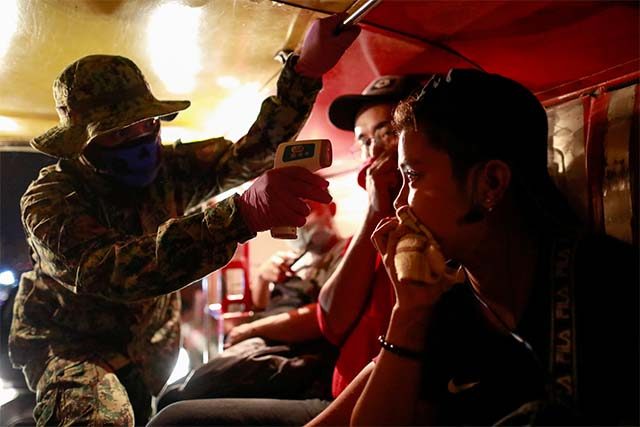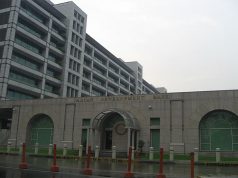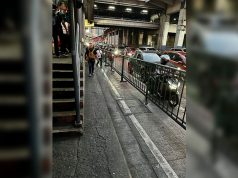
Testing czar Vince Dizon claimed that the success in containing the COVID-19 cases depends on the discipline among citizens in complying with health protocols.
In an interview with ANC on July 16, Dizon shared that the common denominator among countries that are relatively successful in curbing COVID-19 transmissions is discipline among their citizens based on a previous webinar he attended.
“We think it is testing, tracing, health care system, advancement in technology, but actually, it is not. It is plain and simple discipline of the population,” he said.
Dizon further cited that discipline in terms of wearing face masks, going outside and observing physical distancing as the “most important step” in flattening the COVID-19.
“Discipline to wear masks, discipline to observe physical distancing, discipline in avoiding a situation when you will have close contact with people such as having lunch in the office together and exposing yourself,” he said.
He made these remarks on Thursday, amid the implementation of the general community quarantine, which President Rodrigo Duterte extended in Metro Manila for the next two weeks, wherein 50% or 75% of the workforce have resumed.
This includes the partial reopening of malls and operations of mass transport units.
Main factor? Not really
While discipline is a factor, countries that have asserted their win against the deadly virus such as Taiwan, South Korea and New Zealand have mainly attributed their successes to complete transparency and early border control.
Their respective health agencies also implemented the “isolate, test, treat and trace” protocols the World Health Organization required to suppress and control the new pathogen.
These were pointed out by some Filipinos on Twitter.
“Hindi po. Competent leaders ang dahilan kaya sila successful. Dahil yung mga leader ang unang nag-iisip, kumikilos at nagpapatupad. Ang mga tao susunod lang kung nakikita nilang maayos ang pamamalakad. Tama na ang paninisi sa mga tao. Akuin nyo naman ang responsibilidad nyo,” one Twitter user said.
Another user cited NCRPO Police Chief Debold Sinas and Sen. Koko Pimentel as the officials who needed to be disciplined.
Both officials committed glaring quarantine violations but were given a pass by Duterte and other high-ranking officials.
Dr. Gene Nisperos, assistant professor at the University of the Philippines College of Medicine, also refuted Dizon and said that governments of South Korea and Taiwan used their experiences from the SARS pandemic in their planning.
“Taiwan and South Korea learned from their SARS experience and used this to plan and quickly implement a pandemic response. People then followed. Here, govt has no clear plans but demands blind obedience. The DOH cannot even produce reliable data,” Nisperos said.
“Mag-aral ka muna, Vince,” he added.
No, Taiwan and South Korea learned from their SARS experience and used this to plan and quickly implement a pandemic response. People then followed.
Here, govt has no clear plans but demands blind obedience. The DOH cannot even produce reliable data.
Mag-aral ka muna, Vince. https://t.co/PuLViIcopO
— doc gene (@genenisperos) July 16, 2020
Presidential spokesperson Harry Roque also similarly came under fire after he based his comparison of the COVID-19 situation between the Philippines and New Zealand on population instead of the differences in government response.
Studies disproving ‘pasaway’ claims
Asian Development Bank released a case study called “Lockdown, Loosening, and Asia’s Growth Prospects” last June, wherein it showed the Philippines ranked second next to Nepal in terms of the longest and strictest containment measures in Asia and the Pacific.
Duterte imposed the initial lockdown called community quarantine on March 12, and then placed the whole Luzon under enhanced community quarantine on March 17.
The restrictions were only partially lifted last June and this does not cover all regions and provinces in the country.
During the height of the lockdown in April, mobility data from tech giant Google LLC recorded a 90% drop on people going to retail outlets and malls as compared to data recorded prior to the global health crisis in Luzon.
Movements in transport areas also dropped to 90% from March to April as compared to January and February.
This trend is also the same in Central Visayas wherein movements in retail outlets also sank between 70 and 80% in May.
Google used its own metrics based on data from phone users who have their location features on. Meanwhile, the baseline for comparison for the movements was during the five-week period from January 3 to February 6.






